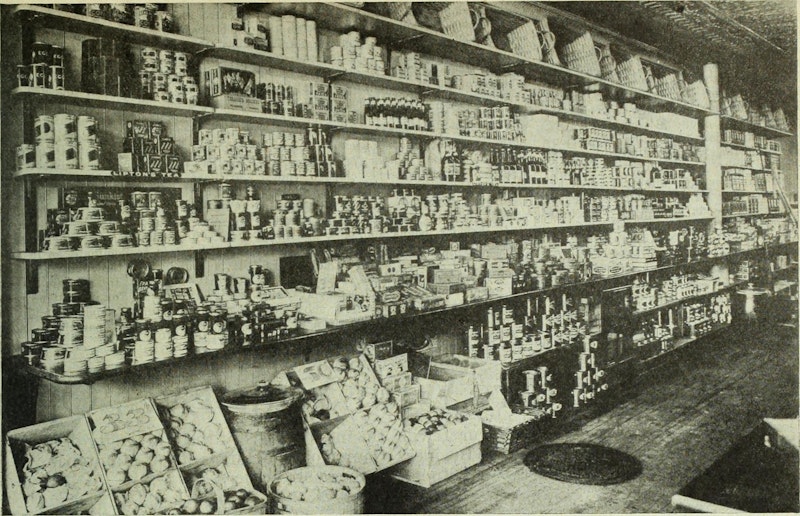I stole three eggs from the supermarket.
Panic buyers had cleared the entire egg section. All there was left was a smashed-up box with a few broken eggs smeared over the packaging. I noticed that three of the eggs weren’t broken, so I picked them out and put them in my pocket. I might’ve declared them at the checkout, but was anticipating the kind of strange conversation this might generate. Instead I decided that, as the bar code was on the box, not on the eggs, no one would notice. So I took the eggs, walking gingerly through the checkout so as not to break them, and then transferred them to my backpack for the cycle home. Two of them made it back intact. The other also survived, but in a slightly cracked state, and I’m now three eggs better off. This morning I had none.
I would, of course, have paid for a complete box, had there been any available.
We’re moving into unusual times, as everyone knows. A measure of this is that one of the lowest paid groups of workers, supermarket staff, is now raised in status almost to the level of the emergency services. They’re on the front line in the fight against coronavirus, working long hours and risking their lives every day in order to make sure the rest of us have sustenance to keep us going through this emergency. It’s a given that we should recognize the efforts of our hospital workers, I just wonder how many of us recognize how important shop workers are too.
Let’s all thank the shop workers and supermarket staff who are continuing to work through this crisis, making sure the shelves are replenished after the waves of panic buying, so that we can go on getting our fresh vegetables and tinned produce, our cook-in sauces and staples to keep us going in the weeks ahead. You deserve a pay raise, you really do!
That goes for all the other previously unrecognized workers who are doing such a sterling job of keeping the country moving in this time of unprecedented change: postal workers and cleaners, delivery drivers, refuse collectors, repair men and women, utility workers, transport workers, local government workers, teachers, the armed forces and the police, as well as the medical staff who are in the actual front line of the fight against this invisible and deadly foe.
You’ll notice how most of them are public sector workers. How things have altered. It wasn’t so long ago we were told that the private sector was the driving force of the economy, and that the public sector was a drain on the dynamism of the free market. Now it’s the billionaire class, those who, in their vanity, always described themselves as “wealth creators,” who are begging for government handouts. They’re about to find out that you can’t create wealth without a workforce. Even the Daily Telegraph, purveyor of right-wing populism, has declared, “We are all socialists now.”
My observation in the shop this morning was that, while the staff were laughing and joking among themselves, with a newfound sense of camaraderie, the shoppers all looked nervous and strained, trying to keep as far away from each other as possible. Some people were talking in too-loud voices in an effort to mask their discomfort. There was a real sense of disorientation and fear.
It was less than a week ago that a friend and I decided to cancel a gig we’d planned. It had still looked possible just the day before. Now all the pubs and restaurants are shut, along with the rest of the hospitality industry. No one knows when they’ll open again. The whole country is in lockdown.
Another friend came to visit last Thursday. She said I was the last person she intended to visit before she went into voluntary isolation. We didn’t kiss, as we usually do, but stood several feet apart and just smiled our greeting. I noticed that she avoided any direct contact with any of the surfaces in my house. She used the sleeve of her pullover to open the door, and held a scarf over her face when she talked. This is what we’re advised to do. Nevertheless it was odd seeing it. I couldn’t help wondering if things would ever be normal again.
The strongest sense I have is that we’re all being thrown back on ourselves. It’s not only the self-isolation, cut off from the rest of humanity: there’s also a sense that the world is changing beyond recognition, and in ways none of us could’ve anticipated. Time has shifted a gear. It’s as if whole worlds have crumbled before our eyes. I can’t believe that less than a week ago I was still laughing at the absurdity of it all. I still think it’s absurd, but it doesn’t seem so funny any more.
I find that I’m guarding myself against my own thoughts. As each thought arises I look at it and wonder, “Is this useful?” I’m often angry at people. Angry at the panic buying, the aggressive shopping, the thoughtlessness and rashness of others, but then I realize that these are all symptoms of fear. Is it useful to be angry?
No.
I have a lot of opinions. Usually they stand me in good stead. They’re left-libertarian opinions designed to counteract the effects of the right-wing press. Are they useful at this time?
No.
I’m frightened of a future that seems so hopelessly out of control, worrying about my family and my friends, speculating about various scenarios, conjuring up imaginary scenes of apocalyptic frightfulness. Is it useful to be frightened?
No.
All we can do now is wait, in silence and in hope, for whatever is being brought to birth in this time of uncertainty. I am practicing Qigong and deep breathing daily, meditating, and listening to the sound of my own heartbeat, while praying for a better world. Is this useful?
Yes.

